Error message
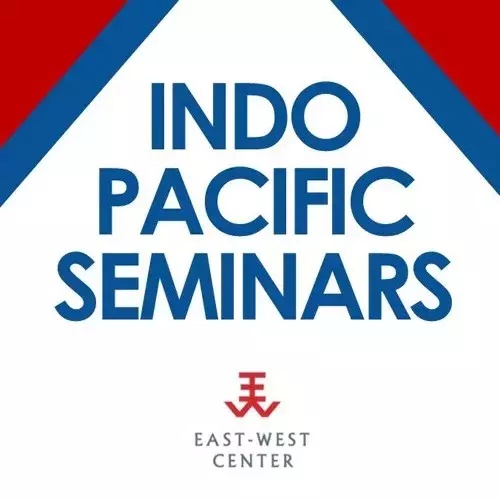
OFFICE/DEPARTMENT
The East-West Center in Washington invites you to the
Indo-Pacific Foreign Policy and Defense Series:
Reducing the Burden of Military Bases on Okinawa:
Implications of the New Security Environment
OPENING REMARKS
Dr. Satu P. Limaye
Vice President, East-West Center &
Director, East-West Center in Washington
VIDEO MESSAGE
The Honorable Yasuhiro “Denny” Tamaki
Governor, Okinawa Prefecture
PANEL DISCUSSION
Mr. Kyouji Yanagisawa
Chair, Bankoku Shinryō Council on US Military Base Issues
Dr. Mike M. Mochizuki
Japan-US Relations Chair in Memory of Gaston Sigur,
Elliott School of International Affairs, George Washington University
Dr. Fumiaki Nozoe
Associate Professor, Okinawa International University &
Vice-Chair, Bankoku Shinryō Council on US Military Base Issues
Dr. Yoshihide Soeya
Professor Emeritus, Keio University
Dr. Akiko Yamamoto
Associate Professor,
Department of Law, Politics & International Relations, Faculty of Humanities and Social Sciences, University of the Ryukyus
Mr. Paul H. Vosti (Discussant)
Director for Japan Policy,
Office of the Under Secretary of Defense Policy
US Department of Defense
Dr. Satu P. Limaye (Moderator)
Vice President, East-West Center &
Director, East-West Center in Washington
East-West Center in Washington · Reducing the Burden of Military Bases on Okinawa: Implications of the New Security Environment
Members of Okinawa Governor Denny Tamaki's advisory group, the Bankoku Shinryō Council on US Military Base Issues, discussed the findings and recommendations contained in their March 2021 report. After initial remarks by Governor Tamaki (English translation here), members of the Council addressed the following issues (PowerPoints available here): (1) the need to reconsider the Futenma Replacement Facility project at Henoko and eliminate the dangers from Futenma Air Station, (2) implications of US-China strategic competition for Okinawa, (3) new operational concepts of the US military and their implications for US bases in Okinawa, (4) Indo-Pacific diplomacy and Okinawa, and (5) the US-Japan Status of Forces Agreement and the impact of US military training on local communities in Okinawa and the rest of Japan. English translations of Mr. Yanagisawa's remarks can be found here.
 SPEAKER BIOGRAPHIES
SPEAKER BIOGRAPHIES
Yasuhiro “Denny” Tamaki has served as the governor of Okinawa Prefecture since October 2018. Prior to holding the governorship, he was a member of the Okinawa City Assembly from 2002 – 2005 and a member of the House of Representatives, representing Okinawa’s 3rd district from 2009 – 2012 and 2014-2018.
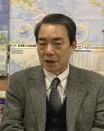
Kyouji Yanagisawa served as Assistant Chief Cabinet Secretary in the Prime Minister’s Office of Japan from 2004 to 2009, and his portfolio was national security and crisis management. In this role, he was responsible for the dispatch of Japan Self-Defense Force units to Iraq and the Indian Ocean. His previous posts include Director of the National Institute of Defense Studies (2002-2004), Director-General of the Personnel and Education Bureau of the Japan Defense Agency (1999-2001), and Vice-Director of the Defense Intelligence Headquarters (1997-1998). While Deputy Director of the Defense Policy Bureau of the Japan Defense Agency (1996-1997), he was responsible for the revision of the US-Japan Defense Cooperation Guidelines. He has been Chairman of the International Geopolitics Institute of Japan since 2010.
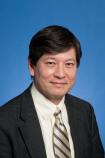
Mike M. Mochizuki holds the Japan-US Relations Chair in Memory of Gaston Sigur at the Elliott School of International Affairs in George Washington University. He directs the Elliott School’s undergraduate degree programs and co-directs the “Memory and Reconciliation in the Asia-Pacific” project of the Sigur Center. Professor Mochizuki was associate dean for academic programs at the Elliott School from 2010 to 2014 and director of the Sigur Center for Asian Studies from 2001 to 2005. Previously he was a Senior Fellow at the Brookings Institution. He received his PhD in political science from Harvard University. His recent books include Memory, Identity, and Commemorations of World War II: Anniversary Politics in Asia Pacific (co-editor and co-author, 2018); Energy Security in Asia and Eurasia (co-editor and co-author, 2017); Nuclear Debates in Asia: The Role of Geopolitics and Domestic Processes (co-editor and author, 2016); and The Okinawa Question: Futenma, the US-Japan Alliance, and Regional Security (co-editor and author, 2013).
Fumiaki Nozoe is an Associate Professor at the Department of Regional Administration, College of Law, Okinawa International University, where he has taught since 2013, specializing in the Japan-US alliance, the diplomatic history of Japan, and US base issues in Okinawa. He was previously a Junior Fellow at the Hitotsubashi University Graduate School of Law from April 2012 to March 2013, and was a postdoctoral fellow at the Australian National University from August to October 2012. His books include History of the US Military Bases in Okinawa (『沖縄米軍基地全史』), and The Japan-U.S. Security Alliance after the 1972 Return of Okinawa to Japan – Strife over the U.S. bases in Okinawa (『沖縄返還後の日米安保ー米軍基地をめぐる相克』), which received the Japan Society for Defense Studies Inoki Masamichi award and the Okinawa Study Encouragement award. Dr. Nozoe earned his master and PhD degrees in International Relations at Hitotsubashi University.
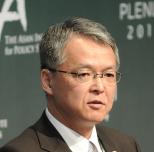
Yoshihide Soeya is Professor Emeritus of Keio University, from which he retired in March 2020 after serving as professor of political science at the Faculty of Law for 32 years. He received his PhD from the University of Michigan in 1987, majoring in world politics. Dr. Soeya served, in 1999-2000, on the “Prime Minister's Commission on Japan's Goals in the 21st Century,” and, in 2010, the on “the Council on Security and Defense Capabilities in the New Era,” both in the Prime Minister’s Office. He was also a member of the “Central Council on Defense Facilities” (2000-2009, Agency/Ministry of Defense), and of the Advisory Group of the Ministry of Foreign Affairs (2003-2013). His areas of interest are politics and security in East Asia, and Japanese diplomacy and its external relations. His recent publications in English include “Middle Power Cooperation in the Indo-Pacific Era,” Issues & Studies, Vol. 56, No. 2 (June 2020); and “The Rise of China in Asia: Japan at the Nexus,” in Asle Toje, ed., Will China’s Rise be Peaceful? Security, Stability, and Legitimacy (Oxford University Press, 2018).

Akiko Yamamoto is an associate professor at the Department of Law, Politics & International Relations, Faculty of Humanities and Social Sciences, University of the Ryukyus, where she has taught since 2018, specializing in International History, US foreign policy, and US base issues in Japan. Her books include “The United States and Revision of Japan-U.S. Security Treaty: Okinawa, U.S. bases and the Alliance (米国と日米安保条約改定―沖縄、基地、同盟),” which received the Japan Society for Defense Studies Inoki Masamichi award, “Outsiders: American Presidents threatened the World(米国アウトサイダー大統領―世界を揺さぶる「異端」の政治家たち)” and “SOFA: 70 years of USFJ and ‘the Alliance’ (日米地位協定―在日米軍と「同盟」の70年).” Dr. Yamamoto earned her master and PhD degrees in Political Science at Hitotsubashi University.
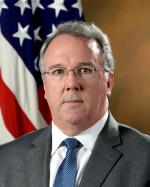
Paul H. Vosti has served as the Director for Japan Policy in the Office of the Under Secretary of Defense Policy at the US Department of Defense since February 2017. Prior to this, he served in numerous positions including Senior Advisor, Guam Policy, OSD Policy, Asia and Pacific Security Affairs at the Defense Department (2009 – 2018); Deputy Director of Plans, Policy, and Analysis at US Marine Corps headquarters (2008-2009); and Director of Plans and Policy (J5) of US Forces Japan at the rank of Colonel in the US Army (2004-2008). He has also been a US Fellow at the National Institute for Defense Studies in Japan (1998-1999). Mr. Vosti has a Bachelor of Arts in Asian Studies from the University of Notre Dame and a Masters of Arts in International Studies from the University of Washington.

Satu P. Limaye is Vice President of the East-West Center and the Director of the East-West Center in Washington where he created and now directs the Asia Matters for America initiative and is the founding editor of the Asia Pacific Bulletin. He is also a Senior Advisor at CNA Corp (Center for Naval Analyses) and Senior Fellow on Asia History and Policy at the Foreign Policy Institute at Paul H. Nitze School of International Studies (SAIS). He is magna cum laude and Phi Beta Kappa graduate of Georgetown University and received his doctorate from Oxford University (Magdalen College) where he was a George C. Marshall Scholar. Recent publications include: “America’s ‘Pacific Principle’ in an Indivisible Pacific Islands Region,” (Asia-Pacific Bulletin); “Despite Stumbles, America’s Engagement with Southeast Runs Deep,” (Global Asia); Raging Waters: China, India, Bangladesh, and Brahmaputra Water Politics (Marine Corps University Press); and Russia’s Peripheral Relevance to US-Indo Pacific Relations (Center for the National Interest).
The East-West Center in Washington invites you to the
Indo-Pacific Foreign Policy and Defense Series:
Reducing the Burden of Military Bases on Okinawa:
Implications of the New Security Environment
OPENING REMARKS
Dr. Satu P. Limaye
Vice President, East-West Center &
Director, East-West Center in Washington
VIDEO MESSAGE
The Honorable Yasuhiro “Denny” Tamaki
Governor, Okinawa Prefecture
PANEL DISCUSSION
Mr. Kyouji Yanagisawa
Chair, Bankoku Shinryō Council on US Military Base Issues
Dr. Mike M. Mochizuki
Japan-US Relations Chair in Memory of Gaston Sigur,
Elliott School of International Affairs, George Washington University
Dr. Fumiaki Nozoe
Associate Professor, Okinawa International University &
Vice-Chair, Bankoku Shinryō Council on US Military Base Issues
Dr. Yoshihide Soeya
Professor Emeritus, Keio University
Dr. Akiko Yamamoto
Associate Professor,
Department of Law, Politics & International Relations, Faculty of Humanities and Social Sciences, University of the Ryukyus
Mr. Paul H. Vosti (Discussant)
Director for Japan Policy,
Office of the Under Secretary of Defense Policy
US Department of Defense
Dr. Satu P. Limaye (Moderator)
Vice President, East-West Center &
Director, East-West Center in Washington
East-West Center in Washington · Reducing the Burden of Military Bases on Okinawa: Implications of the New Security Environment
Members of Okinawa Governor Denny Tamaki's advisory group, the Bankoku Shinryō Council on US Military Base Issues, discussed the findings and recommendations contained in their March 2021 report. After initial remarks by Governor Tamaki (English translation here), members of the Council addressed the following issues (PowerPoints available here): (1) the need to reconsider the Futenma Replacement Facility project at Henoko and eliminate the dangers from Futenma Air Station, (2) implications of US-China strategic competition for Okinawa, (3) new operational concepts of the US military and their implications for US bases in Okinawa, (4) Indo-Pacific diplomacy and Okinawa, and (5) the US-Japan Status of Forces Agreement and the impact of US military training on local communities in Okinawa and the rest of Japan. English translations of Mr. Yanagisawa's remarks can be found here.
 SPEAKER BIOGRAPHIES
SPEAKER BIOGRAPHIES
Yasuhiro “Denny” Tamaki has served as the governor of Okinawa Prefecture since October 2018. Prior to holding the governorship, he was a member of the Okinawa City Assembly from 2002 – 2005 and a member of the House of Representatives, representing Okinawa’s 3rd district from 2009 – 2012 and 2014-2018.

Kyouji Yanagisawa served as Assistant Chief Cabinet Secretary in the Prime Minister’s Office of Japan from 2004 to 2009, and his portfolio was national security and crisis management. In this role, he was responsible for the dispatch of Japan Self-Defense Force units to Iraq and the Indian Ocean. His previous posts include Director of the National Institute of Defense Studies (2002-2004), Director-General of the Personnel and Education Bureau of the Japan Defense Agency (1999-2001), and Vice-Director of the Defense Intelligence Headquarters (1997-1998). While Deputy Director of the Defense Policy Bureau of the Japan Defense Agency (1996-1997), he was responsible for the revision of the US-Japan Defense Cooperation Guidelines. He has been Chairman of the International Geopolitics Institute of Japan since 2010.

Mike M. Mochizuki holds the Japan-US Relations Chair in Memory of Gaston Sigur at the Elliott School of International Affairs in George Washington University. He directs the Elliott School’s undergraduate degree programs and co-directs the “Memory and Reconciliation in the Asia-Pacific” project of the Sigur Center. Professor Mochizuki was associate dean for academic programs at the Elliott School from 2010 to 2014 and director of the Sigur Center for Asian Studies from 2001 to 2005. Previously he was a Senior Fellow at the Brookings Institution. He received his PhD in political science from Harvard University. His recent books include Memory, Identity, and Commemorations of World War II: Anniversary Politics in Asia Pacific (co-editor and co-author, 2018); Energy Security in Asia and Eurasia (co-editor and co-author, 2017); Nuclear Debates in Asia: The Role of Geopolitics and Domestic Processes (co-editor and author, 2016); and The Okinawa Question: Futenma, the US-Japan Alliance, and Regional Security (co-editor and author, 2013).
Fumiaki Nozoe is an Associate Professor at the Department of Regional Administration, College of Law, Okinawa International University, where he has taught since 2013, specializing in the Japan-US alliance, the diplomatic history of Japan, and US base issues in Okinawa. He was previously a Junior Fellow at the Hitotsubashi University Graduate School of Law from April 2012 to March 2013, and was a postdoctoral fellow at the Australian National University from August to October 2012. His books include History of the US Military Bases in Okinawa (『沖縄米軍基地全史』), and The Japan-U.S. Security Alliance after the 1972 Return of Okinawa to Japan – Strife over the U.S. bases in Okinawa (『沖縄返還後の日米安保ー米軍基地をめぐる相克』), which received the Japan Society for Defense Studies Inoki Masamichi award and the Okinawa Study Encouragement award. Dr. Nozoe earned his master and PhD degrees in International Relations at Hitotsubashi University.

Yoshihide Soeya is Professor Emeritus of Keio University, from which he retired in March 2020 after serving as professor of political science at the Faculty of Law for 32 years. He received his PhD from the University of Michigan in 1987, majoring in world politics. Dr. Soeya served, in 1999-2000, on the “Prime Minister's Commission on Japan's Goals in the 21st Century,” and, in 2010, the on “the Council on Security and Defense Capabilities in the New Era,” both in the Prime Minister’s Office. He was also a member of the “Central Council on Defense Facilities” (2000-2009, Agency/Ministry of Defense), and of the Advisory Group of the Ministry of Foreign Affairs (2003-2013). His areas of interest are politics and security in East Asia, and Japanese diplomacy and its external relations. His recent publications in English include “Middle Power Cooperation in the Indo-Pacific Era,” Issues & Studies, Vol. 56, No. 2 (June 2020); and “The Rise of China in Asia: Japan at the Nexus,” in Asle Toje, ed., Will China’s Rise be Peaceful? Security, Stability, and Legitimacy (Oxford University Press, 2018).

Akiko Yamamoto is an associate professor at the Department of Law, Politics & International Relations, Faculty of Humanities and Social Sciences, University of the Ryukyus, where she has taught since 2018, specializing in International History, US foreign policy, and US base issues in Japan. Her books include “The United States and Revision of Japan-U.S. Security Treaty: Okinawa, U.S. bases and the Alliance (米国と日米安保条約改定―沖縄、基地、同盟),” which received the Japan Society for Defense Studies Inoki Masamichi award, “Outsiders: American Presidents threatened the World(米国アウトサイダー大統領―世界を揺さぶる「異端」の政治家たち)” and “SOFA: 70 years of USFJ and ‘the Alliance’ (日米地位協定―在日米軍と「同盟」の70年).” Dr. Yamamoto earned her master and PhD degrees in Political Science at Hitotsubashi University.

Paul H. Vosti has served as the Director for Japan Policy in the Office of the Under Secretary of Defense Policy at the US Department of Defense since February 2017. Prior to this, he served in numerous positions including Senior Advisor, Guam Policy, OSD Policy, Asia and Pacific Security Affairs at the Defense Department (2009 – 2018); Deputy Director of Plans, Policy, and Analysis at US Marine Corps headquarters (2008-2009); and Director of Plans and Policy (J5) of US Forces Japan at the rank of Colonel in the US Army (2004-2008). He has also been a US Fellow at the National Institute for Defense Studies in Japan (1998-1999). Mr. Vosti has a Bachelor of Arts in Asian Studies from the University of Notre Dame and a Masters of Arts in International Studies from the University of Washington.

Satu P. Limaye is Vice President of the East-West Center and the Director of the East-West Center in Washington where he created and now directs the Asia Matters for America initiative and is the founding editor of the Asia Pacific Bulletin. He is also a Senior Advisor at CNA Corp (Center for Naval Analyses) and Senior Fellow on Asia History and Policy at the Foreign Policy Institute at Paul H. Nitze School of International Studies (SAIS). He is magna cum laude and Phi Beta Kappa graduate of Georgetown University and received his doctorate from Oxford University (Magdalen College) where he was a George C. Marshall Scholar. Recent publications include: “America’s ‘Pacific Principle’ in an Indivisible Pacific Islands Region,” (Asia-Pacific Bulletin); “Despite Stumbles, America’s Engagement with Southeast Runs Deep,” (Global Asia); Raging Waters: China, India, Bangladesh, and Brahmaputra Water Politics (Marine Corps University Press); and Russia’s Peripheral Relevance to US-Indo Pacific Relations (Center for the National Interest).








